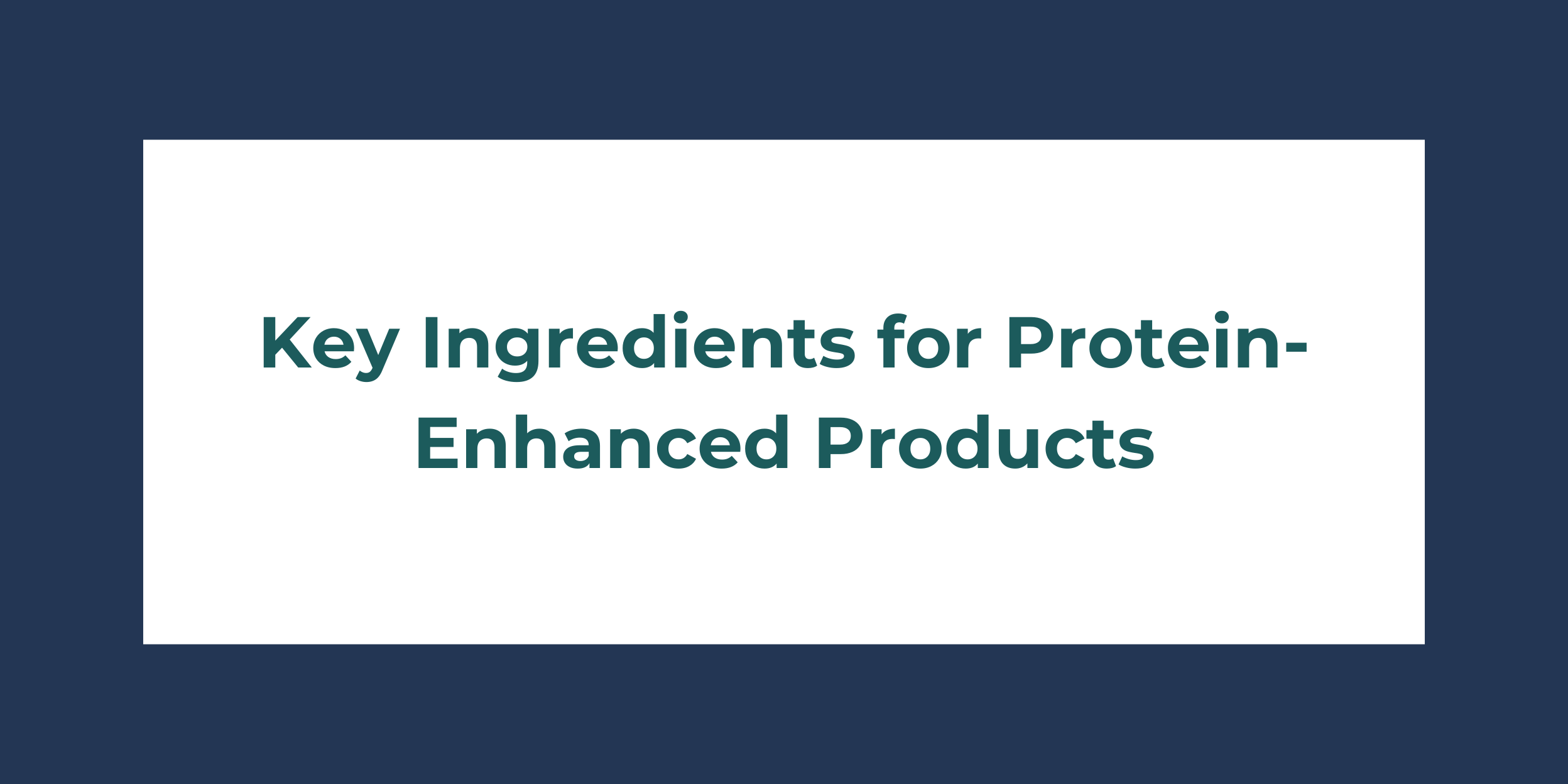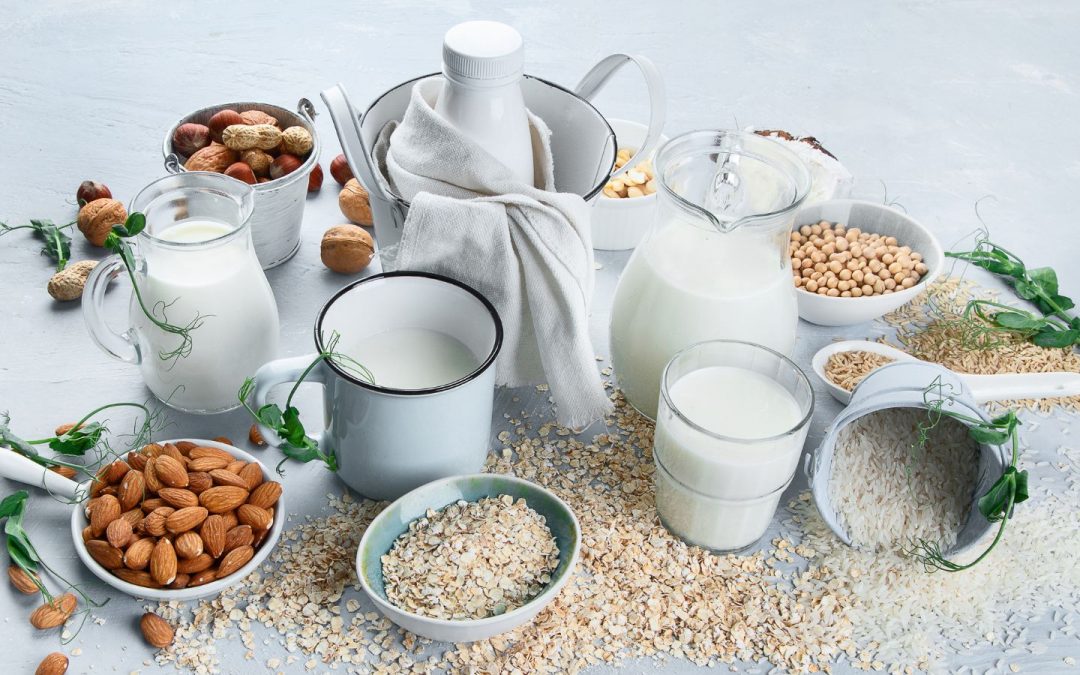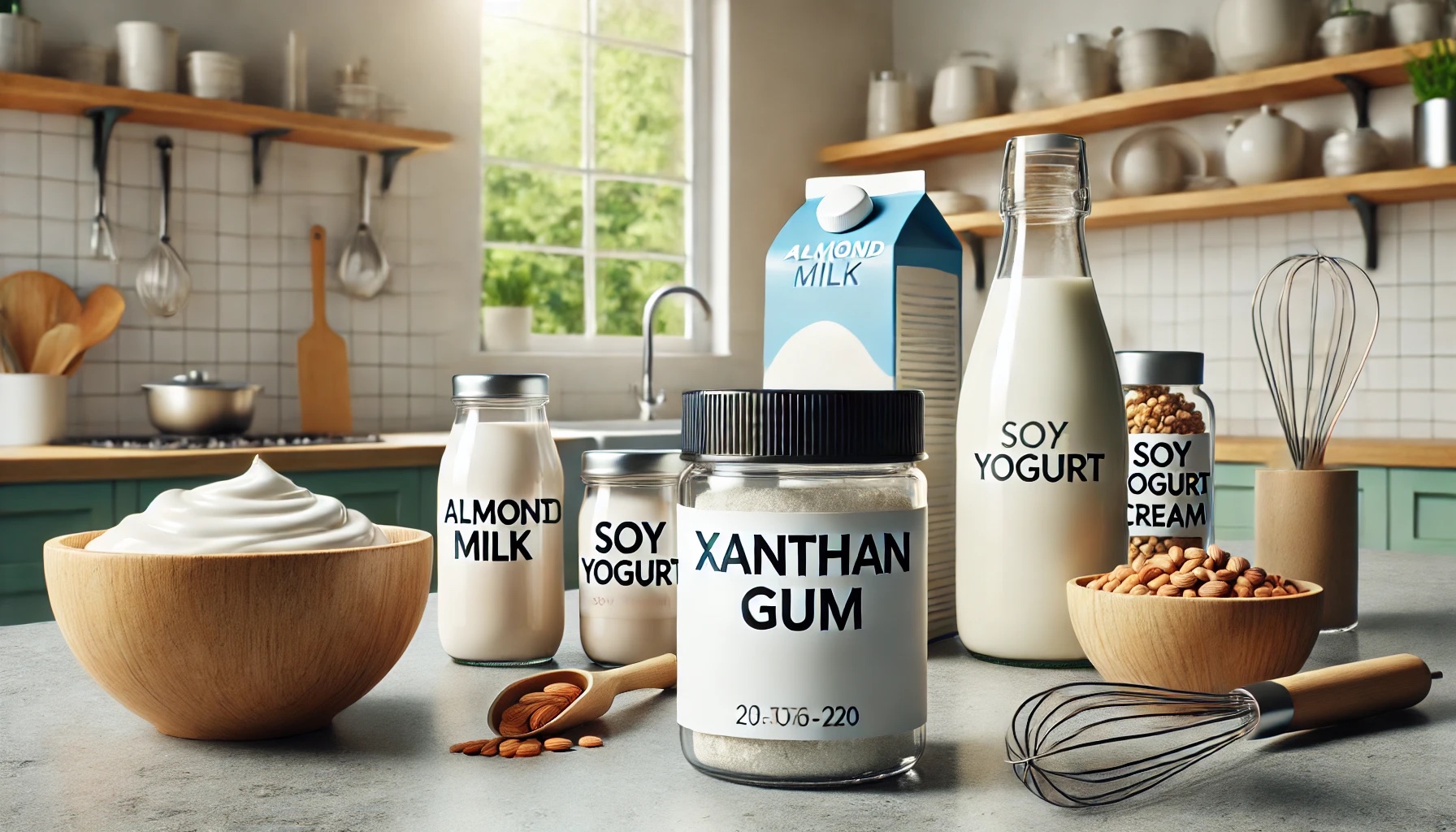In recent years, protein-enhanced products have gained significant popularity among consumers seeking to boost their protein intake for various health and fitness goals.
Whether it’s for muscle building, weight management, or overall wellness, protein-enhanced products offer a convenient and effective way to meet dietary needs.
This blog explores the key ingredients that make these products effective, their benefits, and their applications in the food and beverage industry.
Proteins in Protein-Enhanced Products
Whey Protein
Types of Whey Protein
Whey protein, derived from milk during the cheese-making process, is one of the most popular protein-enhanced product ingredient and protein supplement. It comes in three main forms:
- Whey Protein Concentrate (WPC): Contains 70-80% protein, along with lactose and fat.
- Whey Protein Isolate (WPI): Contains 90% or more protein with minimal lactose and fat.
- Whey Protein Hydrolysate (WPH): Pre-digested for faster absorption and easier digestion.
Benefits of Whey Protein
- Muscle Growth and Repair: Rich in branched-chain amino acids (BCAAs) that support muscle protein synthesis.
- Weight Management: Promotes satiety, helping with appetite control.
- Immune Support: Contains immunoglobulins that enhance immune function.
Applications in Food and Beverage
- Protein Shakes and Smoothies: Widely used in sports nutrition.
- Protein Bars and Snacks: Added to snacks for a protein boost.
- Bakery Products: Incorporated into bread, muffins, and pancakes for enhanced protein content.
Plant-Based Proteins
Types of Plant-Based Proteins
Plant-based proteins are an excellent alternative for vegetarians, vegans, and those with dairy allergies. Common types include:
- Soy Protein: A complete protein with all essential amino acids.
- Pea Protein: High in BCAAs and easy to digest.
- Rice Protein: Hypoallergenic and easily digestible.
- Hemp Protein: Rich in omega-3 fatty acids and fiber.
Benefits of Plant-Based Proteins
- Digestibility: Often easier to digest than animal proteins.
- Allergen-Free: Suitable for individuals with dairy or gluten allergies.
- Sustainability: Environmentally friendly, as they require fewer resources to produce.
Applications in Food and Beverage
- Non-Dairy Beverages: Used in almond, soy, and oat milk for added protein.
- Meat Alternatives: Essential in creating plant-based burgers and sausages.
- Protein Powders: Popular in shakes for those following a plant-based diet.
Collagen Peptides
Types and Sources of Collagen
Collagen is a structural protein found in skin, bones, and connective tissues. It can be sourced from:
- Bovine Collagen: Derived from cow hides, rich in types I and III collagen.
- Marine Collagen: Sourced from fish, rich in type I collagen.
- Chicken Collagen: Primarily contains type II collagen, beneficial for joint health.
Benefits of Collagen Peptides
- Skin Health: Promotes elasticity and hydration.
- Joint Health: Supports cartilage and joint function.
- Gut Health: Aids in maintaining the integrity of the gut lining.
Applications in Food and Beverage
- Beauty Drinks: Added to beverages targeting skin health.
- Protein Bars and Powders: Used for joint and muscle support.
- Functional Foods: Incorporated into soups, broths, and snacks.
Egg Protein
Types of Egg Protein
Egg protein, especially egg white protein, is a highly bioavailable source of protein.
- Egg White Protein: Contains all essential amino acids and is low in fat and carbohydrates.
Benefits of Egg Protein
- High Bioavailability: Easily absorbed and utilized by the body.
- Muscle Maintenance: Supports muscle repair and growth.
- Versatility: Can be used in various culinary applications.
Applications in Food and Beverage
- Protein Powders: Often used in protein supplements for those with dairy sensitivities.
- Baked Goods: Adds structure and protein content to bread, muffins, and cakes.
- Meal Replacements: Included in shakes and bars for a complete protein source.
Casein Protein
Types and Characteristics
Casein protein, another milk-derived protein, is known for its slow digestion rate.
- Micellar Casein: The purest form, digested slowly over several hours.
- Casein Hydrolysate: Pre-digested for faster absorption.
Benefits of Casein Protein
- Sustained Protein Release: Provides a steady release of amino acids.
- Muscle Preservation: Helps prevent muscle breakdown during periods of fasting.
- Satiety: Keeps you feeling full longer, aiding in weight management.
Applications in Food and Beverage
- Nighttime Protein Shakes: Consumed before bed to support overnight muscle recovery.
- High-Protein Foods: Added to yogurt, cheese, and desserts.
- Meal Replacement Products: Used in products designed for sustained energy release.
Yeast Protein
Characteristics of Yeast Protein
Yeast protein, derived from nutritional yeast, is gaining recognition as a valuable protein source, specially for protein-enhanced products. It is rich in essential amino acids and B-vitamins.
- Complete Protein: Contains all nine essential amino acids.
- Nutrient-Dense: High in B-vitamins, minerals, and fiber.
- Sustainable Production: Yeast protein production has a low environmental footprint.
Benefits of Yeast Protein
- High Digestibility: Easily absorbed and utilized by the body.
- Immune Support: Contains beta-glucans that enhance immune function.
- Versatility: Can be used in various food and beverage applications.
Applications in Food and Beverage
- Protein Powders: Used in plant-based protein supplements.
- Meat Alternatives: Incorporated into vegan meats for added protein content.
- Baked Goods: Enhances the protein content in bread, muffins, and other baked items.
Pea Protein
Characteristics and Benefits
Pea protein is derived from yellow peas and is a popular plant-based protein source for supplements and protein-enhanced products..
- High in BCAAs: Supports muscle growth and repair.
- Hypoallergenic: Free from common allergens like dairy, soy, and gluten.
- Digestibility: Easy on the digestive system, making it suitable for sensitive individuals.
Applications in Food and Beverage
- Vegan Protein Powders: Used in plant-based protein supplements.
- Meat Substitutes: Common in vegan burgers and sausages.
- Non-Dairy Milks: Added to pea milk for a protein boost.
Conclusion
Protein-enhanced products are an essential part of modern nutrition, catering to a wide range of dietary needs and preferences.
By understanding the key ingredients such as whey, plant-based proteins, collagen, egg, casein, yeast, and pea protein, manufacturers can create Protein-enhanced products that meet consumer demands for health, convenience, and sustainability.
Whether you are a fitness enthusiast, a busy professional, or someone looking to improve overall wellness, protein-enhanced products offer a versatile and effective solution to your nutritional needs.








